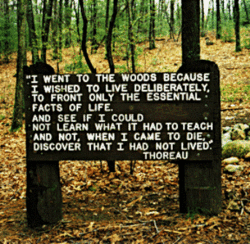 A friend of mine has recently gone on sabbatical. She’s
taken five months off to reflect on her life and to decide whether high-powered
career woman, single at 40 is really the way she wants to go. She’s done this
by booking five months off work, flying to the other side of the globe and…
enrolling in ski instructor school. At a cost of *cough* thousand pounds, she has managed to book up every waking
moment from the day she lands to the day she leaves and she doesn’t even intend
to teach skiing when she graduates! It’s the best bit of procrastination I have
ever seen.
A friend of mine has recently gone on sabbatical. She’s
taken five months off to reflect on her life and to decide whether high-powered
career woman, single at 40 is really the way she wants to go. She’s done this
by booking five months off work, flying to the other side of the globe and…
enrolling in ski instructor school. At a cost of *cough* thousand pounds, she has managed to book up every waking
moment from the day she lands to the day she leaves and she doesn’t even intend
to teach skiing when she graduates! It’s the best bit of procrastination I have
ever seen.
She wrote to me today to tell me that she is enjoying the “chilled” feeling she is experiencing out there, and hopes to bring it back home. But bring it back home to what exactly? To the same lifestyle she had before she left? Same job, different company? The “chilled” feeling she is experiencing now, a few days into the trip, is just denial. All she has done is put off making any decisions about her life for another five months. It’s like a 0% finance deal on a credit card. The debts are still there at the end of the promotion.
This may sound harsh, and I am only writing this secure in the knowledge that she will never, ever read this blog (since she is so self-absorbed that she still gets my partner’s name wrong and doesn’t seem to care). But I think it illustrates an important point.
You see, I have always envied her her job. She earns a lot
of money, and she lives a very comfortable lifestyle. At the age of 30 she has
bought a house in central
But is it really?
While it is abundantly clear that I disagree with how she is going about “finding herself”, I think it is important to be looking for oneself in the first place. So many people seem to be aware that there is something missing from their lives – that there is a depth that is lacking – but so few people seem to be willing to look for it.
I would like to think that I am willing to look, but where on earth do I start? Does the answer lie in voluntary simplicity? Can giving up on the idea of money, of possessions, of purchasing power really make one happy?
There is an idea in NLP that money is energy, and you only ever have as much as you can deal with. If that is the case, then having less money means you need less energy expenditure to maintain it; you have excess energy to devote to creativity, to spirituality, to actually living.
But is that actually true? Less money means fewer holidays abroad, limiting entertainment opportunities (from missed Hen Parties at one end of the spectrum to living without a TV at the other), limiting the amount of stuff you can have (including clothes, haircuts, time and labour-saving devices and crafting bits). Less money means using more brain power in creatively dealing with life, and doing things the hard way.
So is that really desirable? I think what is becoming clear as I write is that it is not simplicity for simplicty’s sake that appeals. Rather, it is a process of working out exactly what you need to live, adding a safety margin, and then having only that. On the face of it that’s quite a frightening concept – of limiting life to the bare minimum. But what if you were really honest about what you need to live a happy life? Then the picture changes.
If you were truly honest with yourself about what you needed to be happy, then rather than limiting yourself to a life of austerity, you choose to provide yourself with only what you need. It becomes an ecological as well as a philosophical concept. It means taking only what you need to be happy (whatever that may reasonably be) and nothing more.
I quite like that concept. The hard part is deciding what I really need to be happy, and what I only think I need. There is going to be some honesty and personal soul-searching involved in that.
Hmmm… is that the washing machine for a life laundry I can hear, filling up?
